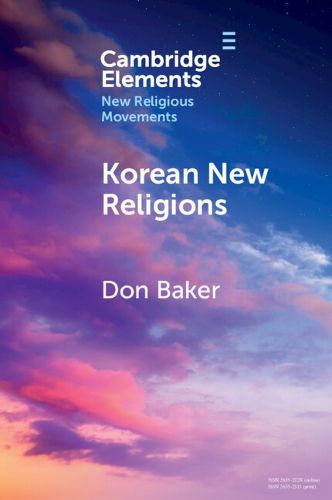Readings Newsletter
Become a Readings Member to make your shopping experience even easier.
Sign in or sign up for free!
You’re not far away from qualifying for FREE standard shipping within Australia
You’ve qualified for FREE standard shipping within Australia
The cart is loading…






Korea has an unusually diverse religious culture. In the north, Juche, which has taken on religious overtones, monopolizes articulations of beliefs and values as well as ritual practice. In the south, no single religion dominates, with over half saying that they have no specific religious affiliation. The remainder report being Protestant, Buddhist, and Catholic. Smaller in number but nonetheless noticeable are members of Korea's many home-grown new religious movements. Reflecting South Korea's religious diversity, some of those new religions have Buddhist roots, some have Christian origins, some draw on Confucian beliefs and practices, and some have emerged from Indigenous religious traditions such as shamanism. This Element examines the most noticeable of Korea's new religions to discover what they can tell us about distinctive traits of religion in Korea, and how Koreans have responded to the challenge posed by modernity to their traditional beliefs and values.
$9.00 standard shipping within Australia
FREE standard shipping within Australia for orders over $100.00
Express & International shipping calculated at checkout
Korea has an unusually diverse religious culture. In the north, Juche, which has taken on religious overtones, monopolizes articulations of beliefs and values as well as ritual practice. In the south, no single religion dominates, with over half saying that they have no specific religious affiliation. The remainder report being Protestant, Buddhist, and Catholic. Smaller in number but nonetheless noticeable are members of Korea's many home-grown new religious movements. Reflecting South Korea's religious diversity, some of those new religions have Buddhist roots, some have Christian origins, some draw on Confucian beliefs and practices, and some have emerged from Indigenous religious traditions such as shamanism. This Element examines the most noticeable of Korea's new religions to discover what they can tell us about distinctive traits of religion in Korea, and how Koreans have responded to the challenge posed by modernity to their traditional beliefs and values.